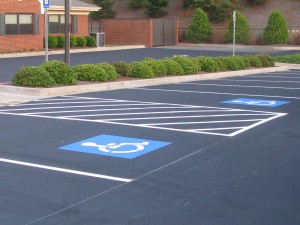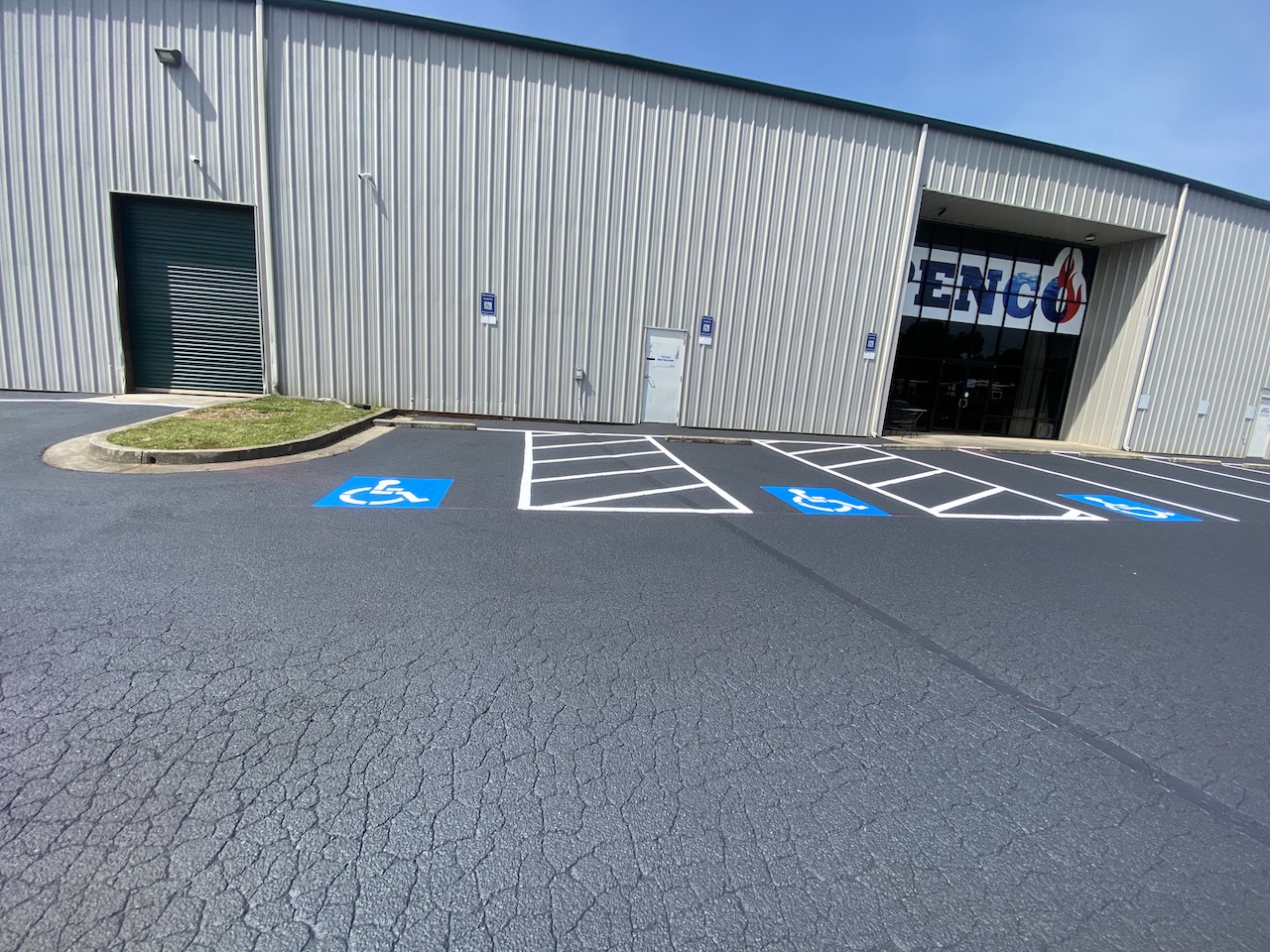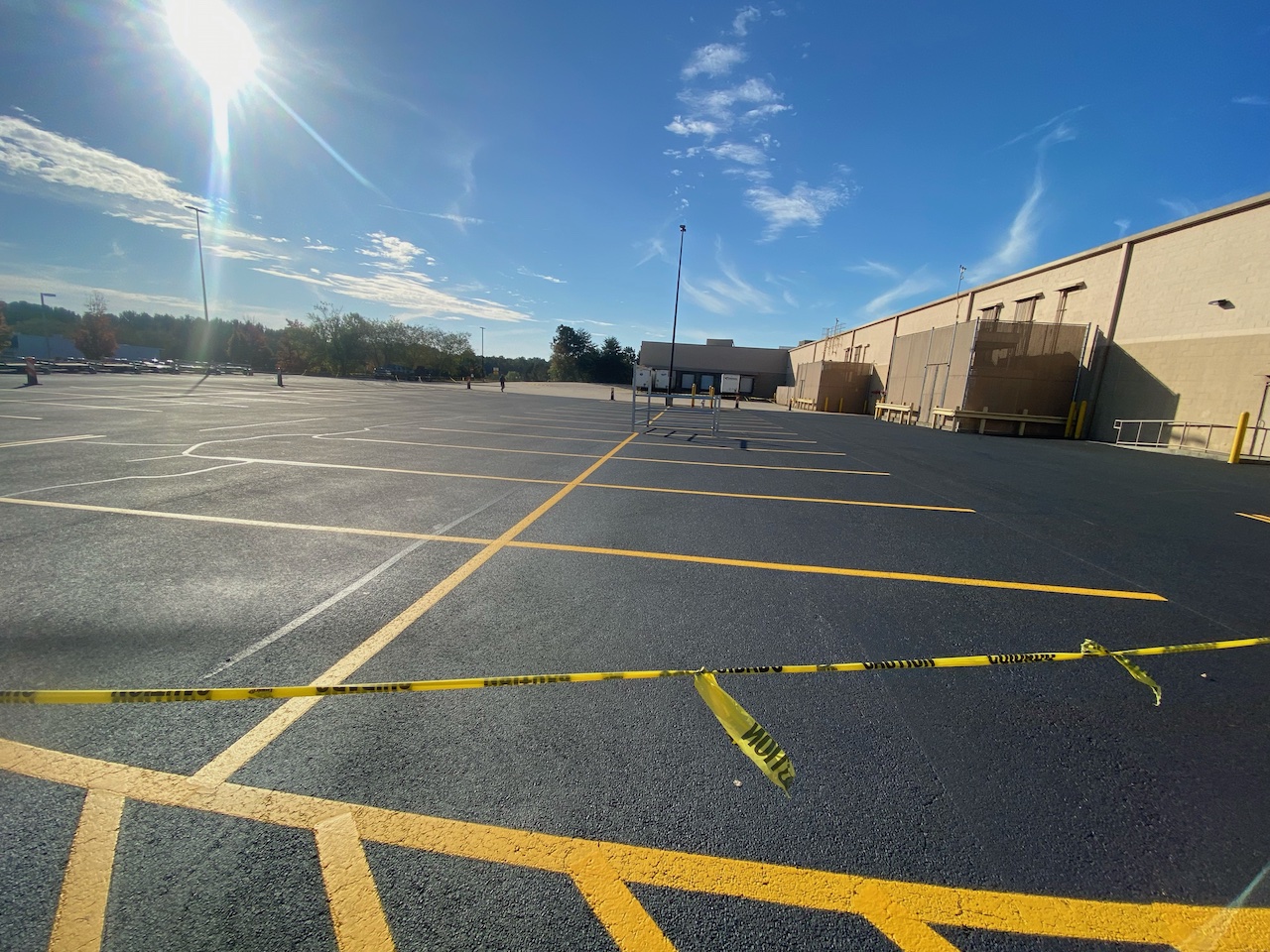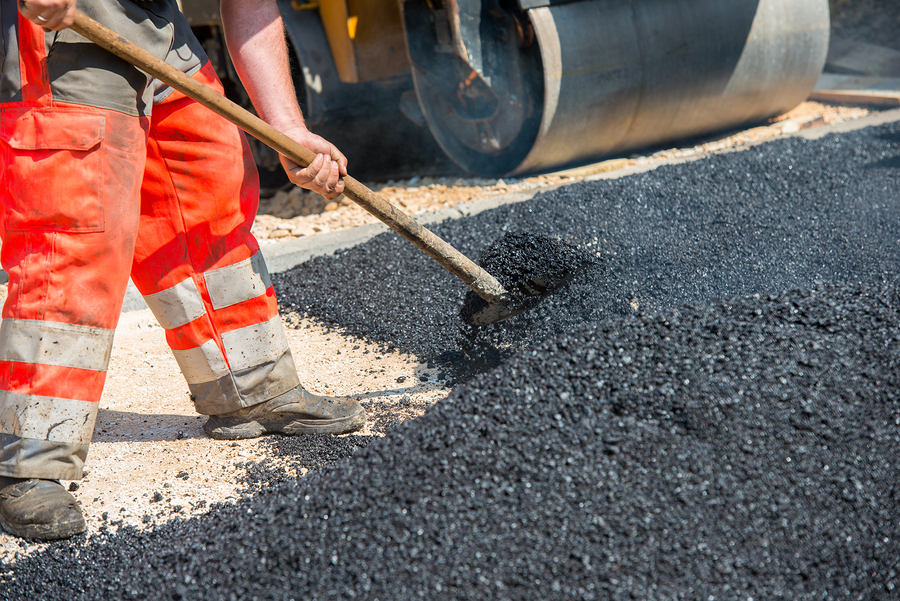
Asphalt Sealcoating: Is Thicker Better?
No, a thick coat of asphalt sealing is one of the last things you want applied to your asphalt pavement. It is actually going to provide less protection than two properly applied thin coats. Furthermore, although it might seem that a thick coat would last longer, the opposite is true — thick layers reduce the life of your sealcoating.
Why Thin Is Better
You probably know that goes on as a liquid. If the sealant remained a liquid, it would be washed away by rain, carried away by tires or picked up on the soles of pedestrians’ shoes. In other words, it would be worthless for protecting your pavement.
For the liquid sealcoating to dry, evaporation must occur; for evaporation to occur, the molecules of liquid must be near the surface so that they can escape as vapors. If a thick layer of sealcoating is applied, most of the water molecules will be trapped far below the surface, so they will need considerably more time to move through the sealant and reach the surface.
The slower rate of evaporation means that it will take longer for the sealcoating to dry. However, this also means that the sealant itself can become degraded; the solid particles can begin to fall out of suspension instead of remaining evenly distributed.
Why Thicker Is Worse
If longer drying time, shorter life and lower quality are not enough to convince you that thinner is better, there are a few other problems with thick sealants.
• Thick coats tend to crack or “alligator.” You may have witnessed this type of surface damage on wood that has had a thick layer of varnish applied all at once. The cracking will detract from the appearance of your pavement. Furthermore, as more cracks develop, the sealcoating will disappear, leaving you with bare patches scattered across your pavement.
• Thick coats are very prone to tracking. Since the sealcoating did not cure evenly and thoroughly, you may find that the sealant is being tracked onto your carpets weeks after the pavement was sealed.
• Sealcoating cures to a hard finish that protects the pavement. Thick coats have trouble developing a barrier of the proper hardness, reducing the amount of protection that your pavement will have.
• The manufacturer may void the warranty on the sealant if it is not applied as specified. No manufacturer advises that thick layers are acceptable. Instead, specifications call for thin coats to be applied.
At MH Greeson, we understand what is required to provide customers with the best results from a Marietta asphalt sealcoating job. We specialize in asphalt maintenance, including sealcoating, crack repairs, parking lot markings, asphalt overlays and pothole repairs in Atlanta, Marietta, and the surrounding areas. We also install car stops, bollards and parking lot signs. We deliver high-quality work at affordable prices. If you would like to receive a free job quote, you can fill out the online form or call (770) 335-2983.




